 Vampire Weekend's Surprising Jewish Stories
Vampire Weekend's Surprising Jewish Stories
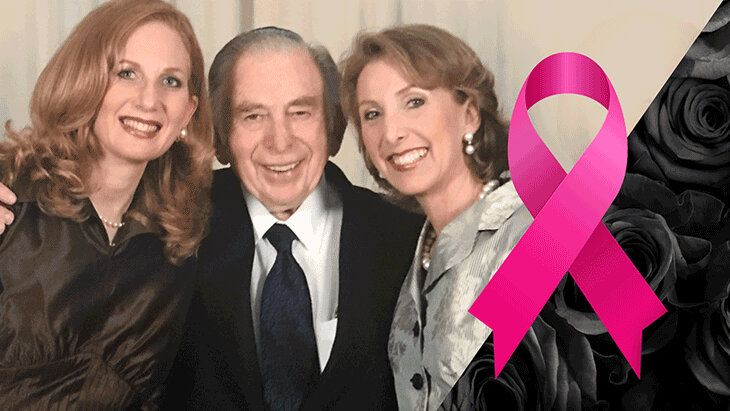

29 min read
My journey into the uncharted territory of cancer.
In 2005, my mother is diagnosed with pancreatic cancer and passes away 18 months later. It feels as though the sun itself has slipped right out of the sky.
Here we all are – my siblings and my father – trying to move through the world underneath this new veil of darkness. Then, just two years later my brother, the youngest of us all, is diagnosed with a brain tumor that keeps him sick for three grueling years, and ultimately takes his life in August 2011, leaving a wife who is like a sister to us and three young children totally heartbroken. This back-to-back loss of our mother and brother is like a primal wound doused with all the salt of the world, a double whammy to the soul, a cruel joke doled out from the ethers that leaves two giant gaping holes in our hearts.
Besides the pain of such tremendous loss, there is the logistical fallout, especially for our father who planned his entire life as if he would be the first to go, leaving my brother as the de facto man of the house to ultimately lead the charge. Caught in this tangle of sorrow and challenge, my dad’s own health begins to decline, and two years later, in December 2013, we lose him, too.
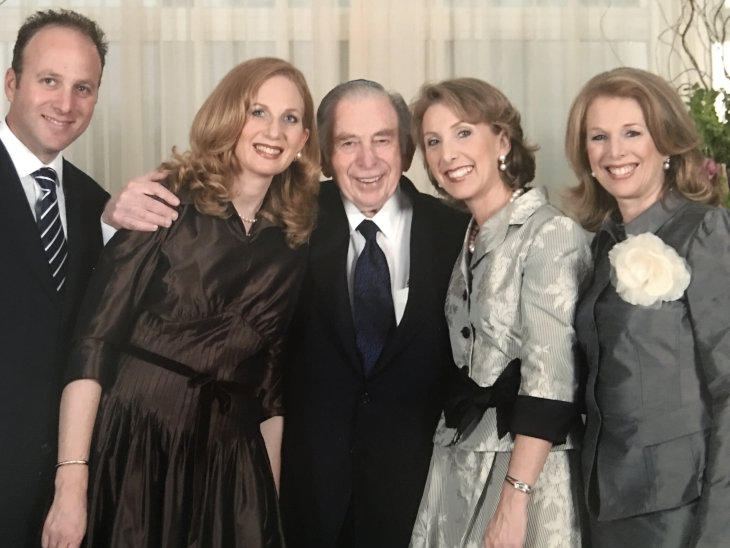 My father zt"l, my two sisters, me (second right) and my brother zt"l
My father zt"l, my two sisters, me (second right) and my brother zt"l
We are three sisters left in the world, parentless and brotherless, setting off on a new chapter of our lives, traveling back and forth from Miami to Peru, where we were born, trying to reconcile our piercing grief with our attempt to understand and manage our family business. It's incredibly difficult, but at least the three of us are together, healthy, with our own respective families, and we are determined to move forward in our lives.
During the heat of one August, eight months after my father passed away, I feel a pain beneath my right breast, right where the bra wire sits. It must be a bruise, I think to myself, but don’t recall bumping into anything or hurting myself in any way. And since I’ve just had an uneventful mammogram in May, I know there’s nothing to really worry about.
Nonetheless, I go to the doctor just to be safe, and she does a sonogram. “I don’t see anything. You probably just over-stretched a muscle,” she says, and sends me on my way. So, I travel to Peru with my sisters, but ten days later when I come back on a Friday, the mystery pain is still there, except now it isn’t simply pain – it’s a little lump.
That very Monday I return to the doctor, hoping (praying) that she’ll still determine it’s nothing. “What are you doing back here?” she asks, puzzled.
“I just want to get a final verdict on this so that I don’t obsess about it, and then I promise I’ll drop it,” I say.
“Okay, let’s have a look.” She proceeds to examine me, using the sonogram probe to follow my finger to the spot on my right breast, and stops, the expression on her face changing abruptly from calm to concern, like a sunny day in the tropics that suddenly goes dark. “Oh my God. I see it...and I don’t like it.”
Eleven words that change everything. The first pebble in the pond that starts the ripple.
“Oh my God. I see it...and I don’t like it.” Eleven words that change everything.
She takes me into another room for a needle biopsy. At noon the next day she calls to confirm what we’d both feared but couldn’t believe – cancer – and tells me to come back to the office to speak face to face. With my husband Saby beside me, the two of us sit across from her desk, dumbfounded, a flurry of questions flying over us like specters. How could this be happening now if I had a clean mammogram in May? How could the sonogram of ten days ago not have sounded an alarm?
She explains that the lump is positioned in a very difficult location to spot, and we both come to realize that for better or worse, it was my bullishness about the weird little pain that has brought us to this moment.
The doctor calls her colleague at Baptist Hospital, who will conduct a lumpectomy two days later. But before that surgery I am advised to consider waiting for the results of a genetic screening to determine if I am BRCA positive, an inherited mutation in one of my genes, which would mean I have a much higher risk of developing breast cancer or ovarian cancer compared with someone who doesn't have the mutation. Knowing that will help dictate the nature of the surgery, and potentially mitigate the need for a second, more elaborate surgery.
But regardless what the genetic screening might reveal, I don’t want to have to wait three weeks for a test result in order to have the lump removed. I want it out of my body now. Sure, I’ll do the testing, but I won’t wait around. If I have to have a second surgery down the line, so be it – but in this moment, the lumpectomy feels like an urgency, and I waste no time in having it done.
Two long weeks later, the lumpectomy results come back – the bad news: it’s “Triple Negative,” a type of breast cancer that is aggressive and difficult to treat; the good news, it’s only stage one. Shortly after, I also receive the results of the genetic test and learn that I am BRCA1 positive.
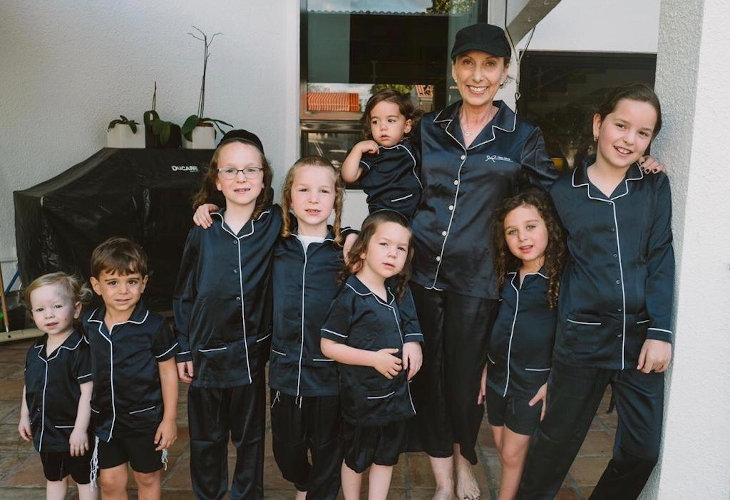 My grandchildren and me
My grandchildren and me
I could have never imagined a medical reality for myself that would include both stage one breast cancer and BRCA1 positive, however I have no choice but to launch myself into a mode of unflinching action, because as difficult as it is to confront this new reality, I also intuitively understand that having an optimistic attitude is going to be the very thing to gently anesthetize this situation – for myself, my husband and my children (for whom I still have to be a mother no matter what goes on), and everyone around me.
With the recent loss of both our parents as well as our dear brother, the prospect of telling my sisters that now I, too, have cancer feels as devastating as the illness itself. So, I take it upon myself to hold it together, to radiate hope and determination, if only for their sake. I know this show of strength and courage will hold everyone together. I know that adding a positive outlook to this very troubling moment will be like adding sunlight to a wilting plant. And that staying hopeful will basically be rooting for myself, and re-rooting myself.
In addition to starting chemotherapy, I start to explore the protocols for a double mastectomy, because I learn that when you're BRCA1 positive your chances of having breast cancer again increase by almost 80%. And I don’t want to live my whole life having to do an MRI every three to six months; I might as well just get rid of it. Here’s that bullishness again, a gift for which I thank God. My action-trigger. My go-mode. My love for life.
Because I am BRCA 1 positive and at an increased risk of developing cancer, the doctors tell me I should consider having my ovaries removed. “When you’re finished with your chemo; when you’re finished with your double mastectomy; when you’re finished with your reconstruction, and when you're well into your recovery, you might want to remove your ovaries as a precaution.” But yet again, something inside tells me not to wait, a sense of urgency from somewhere deep in me that knows to perk up and take the wheel.
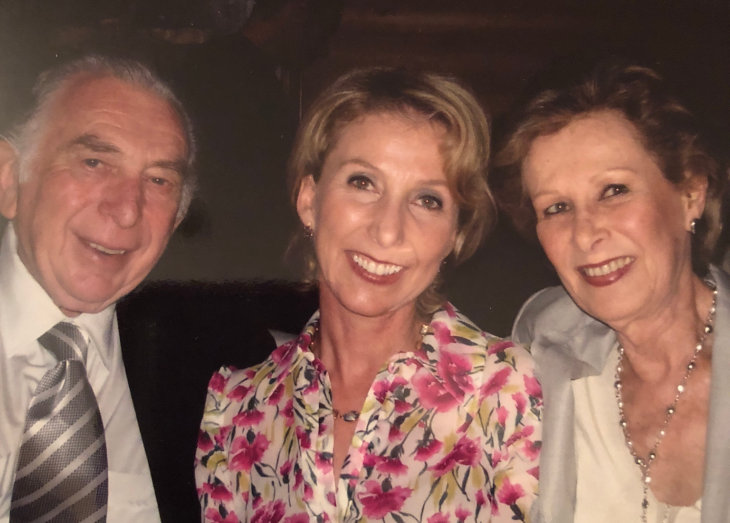 My parents and me
My parents and me
I’d rather have the option to avoid a whole other round of chemotherapy should anything turn up, and simply bid farewell to my ovaries right now. So, I make an appointment with a gynecologic oncologist in Hollywood, Florida, who will see me in a week. Around this time I also meet with Dr. Elisa Krill Jackson, a breast cancer oncologist, whom I like very much and bring onto my team, and who right away suggests what I was already planning to do, “Remove your ovaries before we start chemo...just in case…”
“Thank God,” I say. “That is exactly what my instinct was telling me to do...I already have an appointment with the surgeon.”
One week later I am under the knife to remove my ovaries, a relatively simple outpatient procedure that I’ve chosen to undergo mostly for precautionary reasons. When the doctor, in the midst of the surgery, finds cancerous tumors in not one, but both of my ovaries, his jaw literally drops.
What began as a seemingly innocuous little mystery pain in my right breast has now turned into a full-throttle, life-or-death medical obstacle course.
I’m diagnosed with Ovarian Cancer, Stage 1C. And before I can make sense of any of it, I realize that what began as a seemingly innocuous little mystery pain in my right breast has now turned into a full-throttle, life-or-death medical obstacle course, with the notion of it’s probably nothing now ringing siren-like in my brain as it’s actually everything. Instead of allowing myself to free-all into a state of panic and dread, right away I start to visualize myself as a successful survivor, ready to do anything the doctors suggest, prepared to be the best soldier in the battle of my own survival.
My oncologist prescribes six rounds of chemotherapy for about four months, during which I fare pretty well, all things considered. Then I have a double mastectomy and once I recover from that, I am able to finally have the reconstruction done. Thankfully, my breasts have been fine ever since.
But in August of 2018, four years after my diagnosis of breast and ovarian cancers, one year short of the five-year milestone for cancer survivors, another discovery floats to the surface, another sliver of seemingly random circumstance that lights another match. I learn that in addition to my mother having pancreatic cancer, two of her first cousins have been diagnosed with it – and since I know I am BRCA1 positive, inevitably my inner alarm goes off again and I decide to get checked, just to be safe.
I talk to my oncologist and she agrees it is a good idea to get a baseline checkup of my pancreas and calls up a specialist for an ultrasonic endoscopy, but the earliest appointment they can give me is in December, five months away. Okay, I think to myself, I’m not in a rush. I’m just being proactive because of what I learned about the cousins. In December, the doctor’s office calls and they push my appointment to February. Fine, no rush. Finally, February comes and I see the doctor. He decides to start with an MRI, and as if my luck was etched from the very essence of worst possible odds, he finds a mass in my pancreas.
I had no prior symptoms – nothing. This precautionary test was yet another action taken at the behest of that nagging sense of urgency that kept telling me, throughout the months and years, to keep taking action.
“This mass looks benign,” the doctor tells me when I go back in to discuss the follow-up. “I recommend we simply follow up with another MRI.”
“Doctor, with all due respect, does the mass belong there?” I ask, relieved about his initial assessment, but not enough to stop pushing the issue. “Because if it doesn’t belong there, benign or not, I don’t want it there. I want to have it removed.”
“Why would you do that?” he asks.
“Because that’s how I am,” I reply, the survivorship in me like the captain of a vessel.
The next week I consult with a surgeon. We sit in front of the screen and go through the whole thing all over again. “Yes, I see it,” he says. “It’s here. I have read all about your history, but I have to tell you, this mass indeed looks benign,” and he tries to give me an elaborate explanation of why he thinks this is so.
“I don’t care,” I say. “I don’t want it there.”
“Are you sure?” he asks. “I don't want you to wake up from surgery to discover that I had to take a significant part of your perfectly good pancreas when I really didn’t have to.”
“Yes, I’m sure. Take it out.”
“Okay I will do it, but then I want you to have a biopsy before I do the surgery.”
“Fine,” I said, intent on just moving the thing along.
I undergo the ultrasonic endoscopy for the biopsy, and while I am under anesthesia, much to the doctors’ surprise, he discovers that the mass in my pancreas is in fact cancer. Right in the midst of the procedure, he starts calling around furiously: he calls their lab in the hospital, he calls my oncologist. He just can't believe it. He calls everybody that knows me because he cannot believe that he’s going to have to give me this news when I wake up. I am formally diagnosed with early stage adenocarcinoma pancreatic cancer.
I schedule the laparoscopic surgery immediately with the surgeon who requested the biopsy, as there’s no time to waste. But given all the prior uncertainty around the mass, and after receiving friendly strong advice from people knowledgeable on pancreatic cancer, I postpone the surgery and decide to get a second opinion. One of my cousins with pancreatic cancer lives in Washington DC and had his surgery with one of the best surgeons in the field for this type of operation. I have a consultation with him at Johns Hopkins Hospital and decide to have the surgery there.
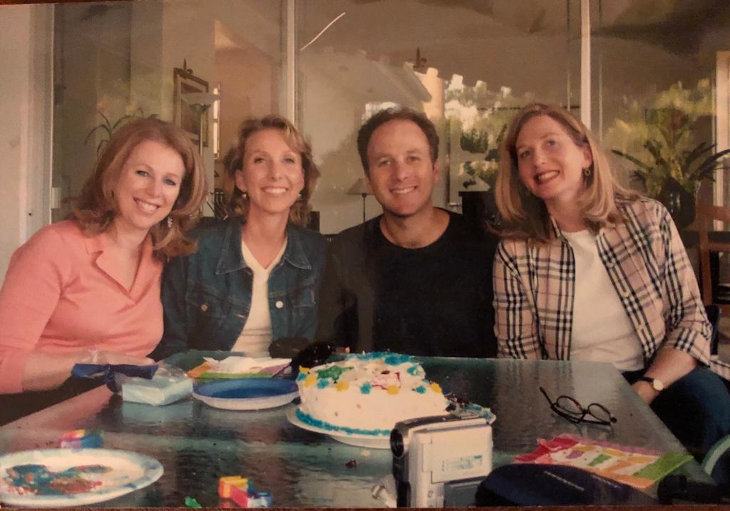 Four siblings
Four siblings
On March 8, 2019, the day of the surgery, as I sit in my gown with the IV needle locked and loaded in my arm, the doctor looks at me seriously and says, “Listen, we’ve looked very carefully at the other CT scans,” because by then I have had a PET scan in Miami and John Hopkins, “and they didn’t seem to see anything else. But now I’m hearing that the radiologist here sees a lesion in your liver that I have to check just in case. If this lesion happens to be anything, I will abort the surgery and we'll close you up, because it will be more important that you start with chemo than to wait for the recovery, which is a minimum of eight weeks.”
“Okay,” I said. “I understand,” now accustomed to worst-case-scenarios, but terrified that this time it would be even worse than that. And when I wake up from the surgery, I learn that the cancer has in fact metastasized to my liver, the news of which is told to me by my husband, my sister and brother-in-law, who are there with me and have had a chance to digest the news while I was under. I have gone from having nothing, to a benign mass, to early detection and finally to Stage 4 pancreatic cancer. “Go do your chemo,” the doctor says. “If you respond well, come back to me and I promise I’ll do your surgery.” Under standard of care, for the most part surgeons do not operate patients with stage IV pancreatic cancer – which makes his remark extremely relevant.
People always talk about the proverbial rock bottom. This is, without a doubt, mine. A low point so desperately low that I feel swallowed whole by the possibility of moving forward. It is a tangle of sadness and fear that crushes me emotionally, to the extent that I cannot even recognize myself. A despair. A hopeless panic. A deep knowing of the fact that I lost my own mother to pancreatic cancer. Inasmuch as I have been able to take the previous diagnoses with more optimism, this time it feels different.
It is a tangle of sadness and fear that crushes me emotionally, to the extent that I cannot even recognize myself. A despair. A hopeless panic.
About a week later I get back to Miami and immediately begin my twelve rounds of chemotherapy. There are two main protocols for pancreatic cancer, and since I’d previously undergone chemo, my doctors want to hone in on the right protocol and decide by identifying which medication has the most virgin effect on my body.
My emotional landscape is bleak and the logistics of my treatment are intense. But along with all the medicine and medical intensity comes something else. The same part of me that knew back when I had breast cancer that optimism would be the key to
getting through this mess now starts to see that it’s this very optimism that has to not only kick in – but really switch into a higher gear.
One day, with the help of God, about two weeks after my first treatment, I wake up from this place of hopeless dread and desperately start seeking for tools to become myself again, the tremendous mind over body attitude I impressed myself with in my previous fight and consciously make the choice to activate every single one of my resources to get my mind right – to fight for my life. I reconnect with God, I look around at my family and friends, I start listening to everyone's advice, I open my heart to the love and prayers coming my way and begin to feel tremendously grateful in the midst of some very dark days. And all of a sudden, I find the strength to do my part. It may be rock bottom, but I refuse to have a crash landing.
Suffering is part and parcel of the life experience. Of course, we have joy and rapture, but not without the innate flipside of pain and misery; of feelings so catastrophic that they feel like little deaths themselves. Yes, suffering is an unequivocal universality – but it is our management of suffering that ultimately charts the course of the experience. Is cancer a tragedy and a crisis? Well, that’s only one side of the coin because it becomes clear that for me cancer is also now a window into self-optimization, an anatomical education, a testament to the deep, rooting love of my husband and family, and a personal call to rise.
And somehow, through the blur of patient exhaustion, the most important lesson starts to become revealed: that if I am to be a soldier in the battle for my survival, it truly is my attitude that will have to rise up and serve as the great general of this brigade. So, I confront my attitude like a coach would their star player: Come on, you. You are a warrior. You’ve got this, I say to it. You can shine like the sun no matter how dark it gets, I tell it. And it is with that level of radical optimism that I walk into the unknown.
My mantra becomes: the only thing I have control over is my attitude.
My mantra becomes: the only thing I have control over is my attitude. Because if I allow the first line of my thoughts to be consumed by medical statistics and the doctors’ opinions about my condition, my own mind will be the first obstacle to my cure and recovery. So, I’ll need tools as well as fellow cancer patients with whom to talk and share, empathetic sounding boards that can be at once a safe place to vent, cry, laugh and lift up.
Around this time, I become aware of a WhatsApp group formed by members of my family called “Team Rosi.” It includes all kinds of individuals – from super close friends and relatives, acquaintances from my past and everything in between – who have chosen to participate in prayers for my health by each one doing their little part to recite the Book of Psalms in its entirety as a group, every single day. Like a digital wave of energy that colors each morning with hope, rooted to the divine words of some of our most beautiful ancient texts. This collective gesture of hope manifested in this sacred expression feeds my soul with forward momentum. Their belief carries me up and their intention propels me forward.
With the help, guidance and support of so many close friends and relatives, I keep building my survivorship toolkit, physically, spiritually and emotionally: and as I move through the challenges, I choose grit instead of grief. In the place of pity, I opt for purpose. I am determined to remain active, not reactive. I start to live in a constant mode of self-optimization, which I assume is triggered by my desperate wish to live, to be with my family, to see my grandchildren grow, to fulfill so many future plans that I share with my husband. I understand that if I want my chemo to work, I have to be my own cheerleading squad. I have to rally the forces of my whole person – mind, body and soul – to provide the place where God can make the medicine prevail. I have to step in and be the vehicle that sends the perfect messages to each and every one of my cells.
As I move through the challenges, I choose grit instead of grief. In the place of pity, I opt for purpose.
I begin to own my healing and recovery as a matter of personal duty – it becomes the engine of my purpose. I don’t count on the medicine alone to bring me health. Instead I transform my life into a living kind of medicine. For starters, I am blessed to be surrounded with positive, loving and supportive people which I believe is the immediate forcefield one needs for this type of battle. In my husband, Saby, I find resilience and direction; in my children, motivation; and in the eyes of my grandchildren, hope. The force of this love is so strong that it powerfully mobilizes my wellness to the very top of my priorities, holding there in its powerful embrace. When I feel down, a smile from one of these loved ones is like fresh water to a bloom. Their belief in me becomes my belief in me.
I read The Choice by Dr. Edith Eva Eger, a holocaust survivor and renowned clinical psychologist who invites the reader to, as the book’s subhead very well notes, embrace the possible. To extract wisdom from trauma, and hope from belief. I also read Man’s Search for Meaning by Viktor Frankel, the Holocaust survivor who, in this seminal work, outlines his healing psychotherapeutic method that involves homing in on a purpose in life for which to feel positive, and then visualizing that outcome. “Ultimately, man should not ask what the meaning of his life is, but rather must recognize that it is he who is asked,” Frankel wrote. “In a word, each man is questioned by life; and he can only answer to life by answering for his own life; to life he can only respond by being responsible.”
My body, despite itself, indeed becomes my temple. I feed it with the kinds of nourishing foods that I know will optimize my cells. And just as I feed my brain with healing content, I likewise nourish my spirit and body. I do my daily prayers, read Psalms and meditate.
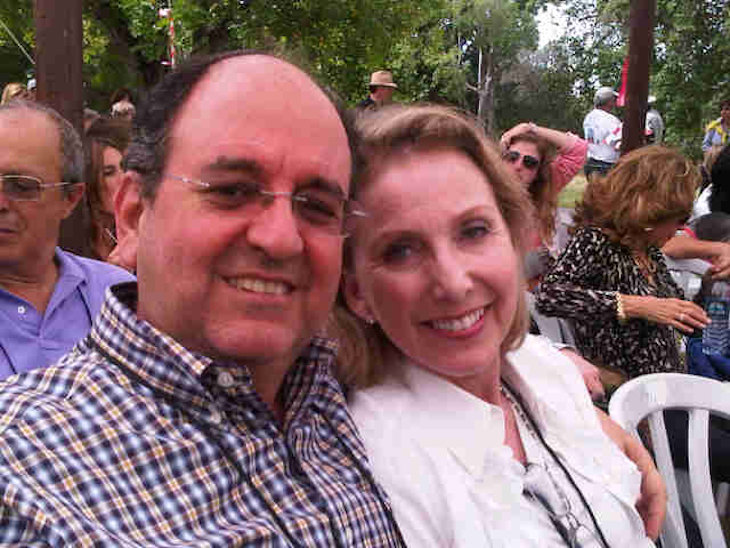 My beloved husband, Saby, and me
My beloved husband, Saby, and me
But the highest level of my healing manifests as service, as I talk to cancer patients that reach out to me and I am able to be a lighthouse for them in the throes of the storm as others have been for me. I know that by participating actively in the empowerment of other patients, I empower myself. In giving of myself, I fill myself up.
As I begin to feel more positive, active and optimistic about my future the truth about wellness starts to become abundantly clear: doctors can only do one part of the job – the patient has to do the rest. Well, the patient and their support system, which in my case is the team of my family, community and my beautiful circle of friends whose overwhelming amount of prayers fueled me with love and strength to keep moving forward.
Every oncologist I see during my chemotherapy sessions tell me to not even think about the surgery at the end of my treatment. The negativity is so palpable that I begin to doubt what the doctor at Johns Hopkins promised.
So, in July, at around the eighth round of chemo, I return to Johns Hopkins perhaps a bit prematurely, hellbent on having that surgery done. The doctor confirms that he will perform it because I am responding well to the treatment, and we decide to wait to finish all twelve rounds of chemo.
After seven incredibly intense months of chemo, exhaustion, and a lingering angst over the ultimate fate of this forthcoming surgery, I finally see the surgeon again in December of 2019. “I’m going to go in. And no matter what I see this time, I won’t abort the surgery,” he says. He goes in and checks everything, using the same surgical cut that I’d already experienced, starting at my breast and going all the way to my belly button. He removes the tumor at the tail of my pancreas, assesses my liver, removes my spleen, and he takes out 33 lymph nodes, out of which two are positive.
It takes me about eight weeks to recover from that surgery, after which my whole medical team assesses my pathology reports and status – which appears to be cancer free at the moment – and they agree that I should start a maintenance program taking a pill form of chemo, which is a PARP inhibitor that was discovered in Israel and approved by the FDA in December 2019 to treat patients who are BRCA positive, have late stage pancreatic cancer and responded well to chemotherapy treatment . I consult with a doctor at Sloan Kettering who I’d seen before, and she confirms: “You have three options: do nothing, do chemo or take the pills.” But at the risk of redundancy, and now obsessed with second opinions, I consult with a doctor at Bruckner Oncology in the Bronx, whom I’d also seen before, and he says:
“I hate to say this, but I completely disagree. I think you should do six more months of chemo again and then take the pills.” This makes a lot of sense to me, so I jump on it. I know I won't be able to sleep at night until I have a final cleanup, and while no one wants to have to undergo more chemo, I know I have to keep doing this. Given the disagreement between my various doctors, I make a Solomonic decision: I go with the assessment of the Bronx doctor, but I do the type of chemo advised by my doctor in Miami. After four rounds of chemo, I begin the maintenance treatments with the PARP inhibitor pills.
It begins to dawn on me that no matter the caliber of institutions where you consult – from the likes of John Hopkins to Sloan Kettering – in the end, you are the sole conductor of your own healing, the one who lays the groundwork for possibility and hope. Some might say, for example, that it was overkill for me to consult with three different doctors after my surgery, but after the trajectory of my experience, this Cirque-du-Soleil-like experience of cancer, I operate with a certain amount of PTSD (Post Traumatic Stress Disorder), an innate caution and hyper-awareness of my body, which I would argue has also been the thing that’s kept me alive. As I see it, this hyper-awareness fuels the intentionality with which my healing continues to be possible. It’s the secret sauce of my stamina.
I don’t know what the future has in store for me, but I do know that medicine comes in many forms, that maybe by working with what I’ll call one’s personal frequency, we can somehow guide and assist our own healing. Modalities such as yoga, and spiritual practices such as regular prayer are obvious ways to raise one’s frequency. Laughter, too, is an easy and reliable tool. It seems to be that when we laugh we alter the biochemistry in our body, loosening the debris of pain and hardship from our soul and instead filling it with lightness and joy. Whether it’s watching funny films, which I could do more of, or even taking a laughter yoga class, which I still plan to do – relaxing into the simple pleasure of a good laugh is exactly the type of surrender that gives space for real healing.
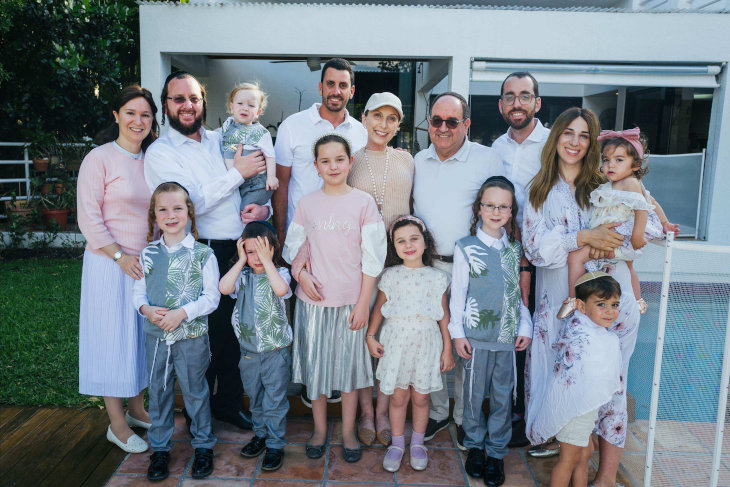 Our immediate family
Our immediate family
Another critical nuance of healing is honesty, unconditional transparency. For me, it means never keeping secrets about my illness, or requesting that from my family which would only add to the toxicity of the situation. It would darken an already dark scenario. I choose full disclosure, openness and acceptance. I do not stifle the fact of the illness or my feelings around it, and instead I make it a point to talk about things, to vent and ideally to help others like me who might be going through similar challenges.
Having a positive attitude does not mean negating what I am going through, but rather accepting my reality and making the best of it.
I do have difficult days where I have to deal with the dark thoughts and emotions that surface, and I allow myself to linger in that sad and depressing state for some time, but with the intention of sorting out my thoughts and feelings and exiting from that slump. Having a positive attitude does not mean negating what I am going through, but rather accepting my reality and making the best of it. I live my life in the present while at the same time have projects and plans that keep me looking toward a bright healthy future. I strive to live my days without a sense of entitlement and desire for perfection, but rather with joy and thankfulness. I believe that a terrible diagnosis does not have to close doors. From its darkness comes the light of opportunity and self-growth. Isn’t it amazing to see the beauty of life somehow hidden in its flaws?
Do I ask God why? Perhaps. But what I really ask is, “What does God want from me? Where should I focus? How should I spend my time? What changes do I need to do? What good has to come from all this?" And as I untangle these answers, there has been a lot of learning and personal growth.
I live everyday with an appreciation that is hard to describe. God has been, is and will always be my inspiration and my companion. In every prayer and blessing I am acknowledging God’s presence in this world and empowering myself to not be self-centered as I take responsibility and make valuable choices that affect my future.
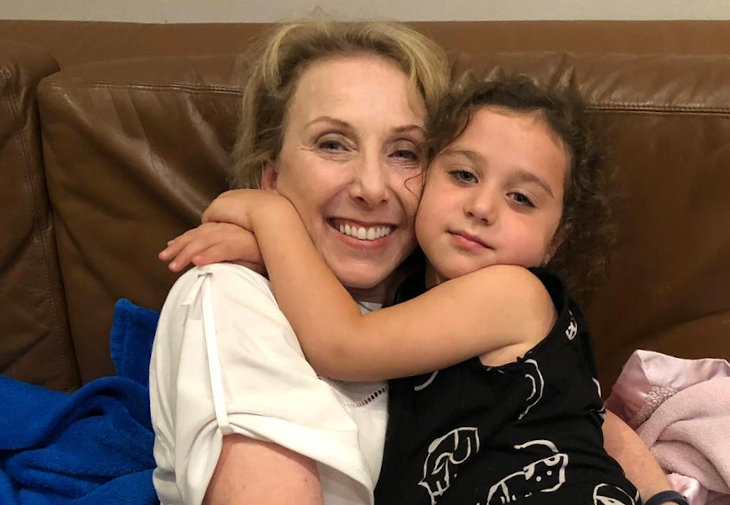 Embracing life
Embracing life
And as I accept my challenges I try not to obsess about the outcome of my decisions because I know God is there holding my hand as my partner in my unfolding reality. So, when I wake up every morning and the first thing I say is the Jewish prayer Modeh Ani, “I give thanks before you, King living and eternal, for you have returned within me my soul with compassion – abundant in your faithfulness,” I am verbally acknowledging God’s gift of restoring and entrusting my soul back to me morning after morning, and it comes out so sincere, from a place so deep inside of me I can almost touch the gratefulness... I would dare say it is the highlight of my day and the closest I ever get to God.
Faith appears as a sort of courage to live with the messy fluid uncertainty.
And with each day I re-learn that faith is not the same as certainty. Instead, faith appears as a sort of courage to live with the messy fluid uncertainty. Faith does not mean having the answers – it means having the courage to ask the questions. It means cozying up to the unknown, staring into its ugly vastness and filling it with all the love in your heart.
With this wellspring love, I am able to face the challenges that bubble up. Throughout the journey there has been a ripple effect of positivity. A domino flow of initiative. A causal nexus of progress, and a chain reaction of self-advocacy, radical optimism and unflinching survivorship. What once felt like concentric circles of pain and problems have become ongoing reverberations of promise and purpose. The fear of not being here has deepened my sense of presence. The series of unknowns has sharpened the love I feel toward what I do know. The feeling of isolation made me feel closer to my people. And the sense of hopelessness has, in time, built up my determination into the rock on which I can build the rest of my life.
And so, when I light my candles on the eve of every Shabbat, and spend those sacred moments in connection with the Divine, I know that my life has not been a vicious circle at all – but rather a beautiful and complex infinity of hope.
